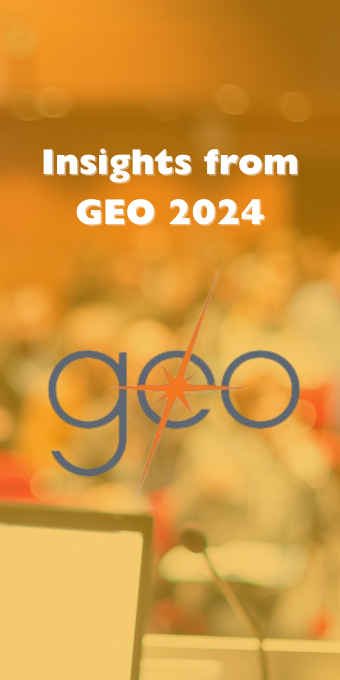Trending: Looking Internally for New Leaders and Other Insights from GEO 2024
I had the opportunity to attend GEO’s 2024 National Conference in Los Angeles in May. It was my first GEO conference, and I was struck by the energy of the attendees, the conference’s commitment to inclusion and well-being, and the deep thinking and dialogue provoked by the sessions. I left inspired and hopeful about the future of the nonprofit sector. I wanted to share some of what I learned.
GEO 2024 had a strong focus on the trends around leadership transitions in the sector.
- I appreciated the trend toward looking internally for new leaders rather than national, external searches. Broad-based executive searches have their place, but many organizations are finding the best new leader has been with the organization all along. Case in point is our recent client, Swallow Hill Music in Denver, which recently promoted Jessy Clark to CEO . I think this trend is great news for the sector and encourages boards not to default to external searches, but to balance the pros and cons of each approach.
- Board and staff dynamics – These relationships can be hard to navigate if the executive transition process is the first time there is genuine interaction, so create space for building personal connections.
- Be transparent about what is working and what is not working at the organization. Otherwise, the transition period could involve a lot of unpleasant surprises.
- The board needs to lean in and clarify with staff what their role is or is not during the transition. This can be difficult, and boards may not be inclined to engage in this way, but everyone needs to be clear on expectations, even if they may shift over time.
- Finally, both the board and the staff need to realize that a new leader won’t solve every issue. There is no magical person who will drop in and make every problem go away. Disastrous transitions can be avoided, but organizations need to have realistic expectations of their new leaders and be open to the changes new leadership brings.
- New leaders were encouraged to
- Create an outside cabinet as a resource/sounding board. Gather a few key contacts and mentors who are willing to provide guidance during transition. Having the ear of folks outside the organization can provide important perspective and support.
- Work with the board on organizational metrics and KPIs – it is important that there be clarity and recognition of the impact of transitions on timelines. Again, understanding expectations and what is realistic is key.
- Be aware of the challenges if there’s a board transition at the same time as an executive transition. This can create instability at all levels of the organization. Be intentional about how you honor the past while casting a new future.
There was also a wealth of information shared at GEO 2024 about exciting efforts by nonprofits around the country.
- I’m embarrassed to say that I had not heard of Nonprofit Vote before, but I’m spreading the word in case others haven’t either. They provide nonpartisan resources to help all nonprofits integrate voter engagement into their work. Given how polarized the country has become, I think many nonprofits have been reticent about civic engagement, but the importance of the upcoming elections means we should all be encouraging each other to be civically involved. Even more resources are available at Bolder Advocacy, which has a map that helps you get resources tailored to your state.
- I was also intrigued by the Vision Comunitaria work in Oregon to “create and implement a unified agenda to guide advocacy, policy, and service provision” for Latine/x/a/o organizations and leaders. This effort, supported by the Meyer Memorial Trust, provided the Latine community with the resources to create their own vision for their community, rather than constantly being reactive to other visions or specific funding opportunities. Their work highlighted the challenges of philanthropy to meet the speed the community is moving, which can also shift. They also found that quantitative metrics aren’t reliable outside white communities, so they are building durable qualitative metrics. I’ll be interested to learn more as their multi-year process unfolds.
Spring and summer are conference season, and there is joy in fully in-person conferences bringing practitioners together again to exchange ideas. At La Piana, we will be folding these learnings into our work. We are interested to hear what you learned at GEO2024 or other conferences and what learnings you are bringing to your day-to-day work.


Comment section